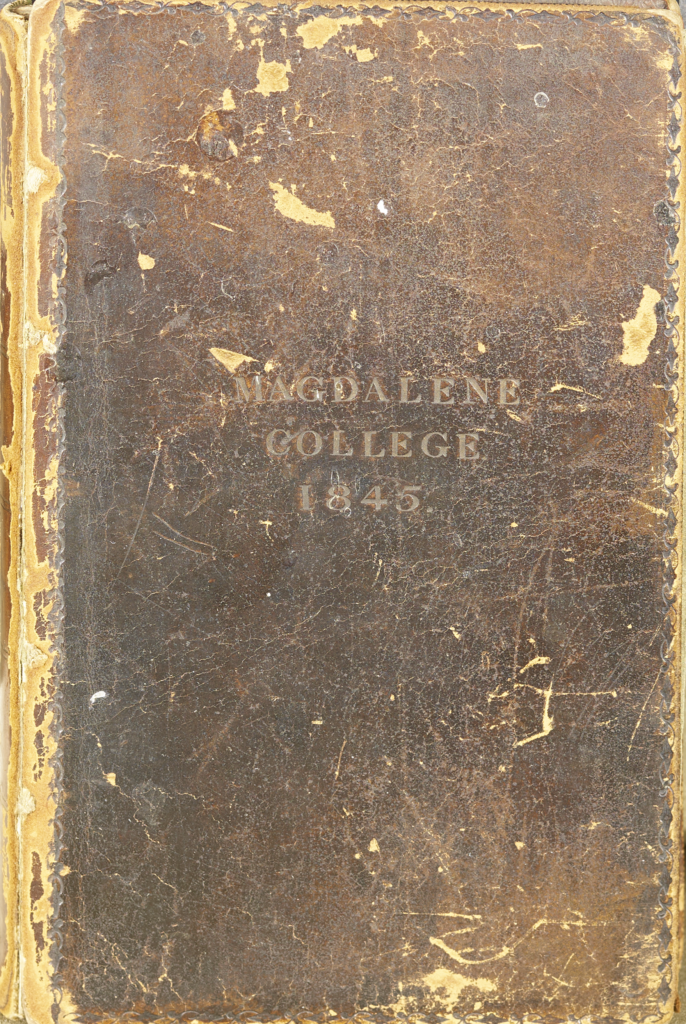
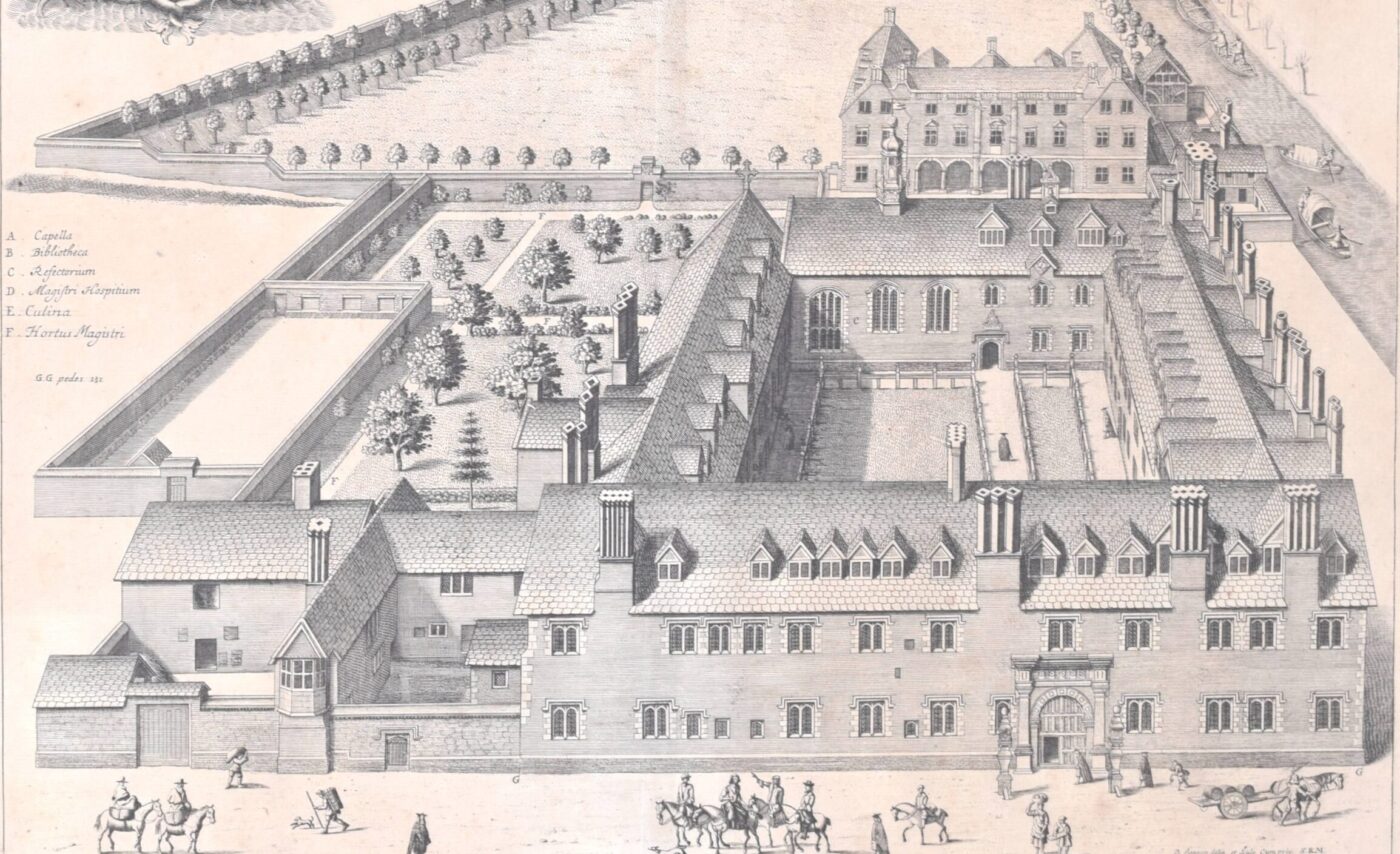

In 1954 Lewis was elected to the newly established Professorship of Medieval and Renaissance English at Cambridge University, a post he held until his retirement in 1963. On his election to the chair, Lewis expressed a particular desire to become a fellow of Magdalene College, since it would enable him to remain under the same patroness and thereby avoid inconveniencing the celestial civil service. During his Cambridge years, Lewis commuted between Magdalene College and his Oxford home, spending weekends and vacations at The Kilns.


Lewis’s copy of The Book of Common Prayer with Magdalene Cambridge binding
Following his conversion to Christianity, Lewis regularly attended college chapel services. This copy of the Book of Common Prayer was used by Lewis at Magdalene College Cambridge. Lewis wrote of Coverdale’s translation of the Psalms in The Book of Common Prayer that their beauty and poetry surpassed all others.
Permission to reproduce given by the estate of Walter Hooper.
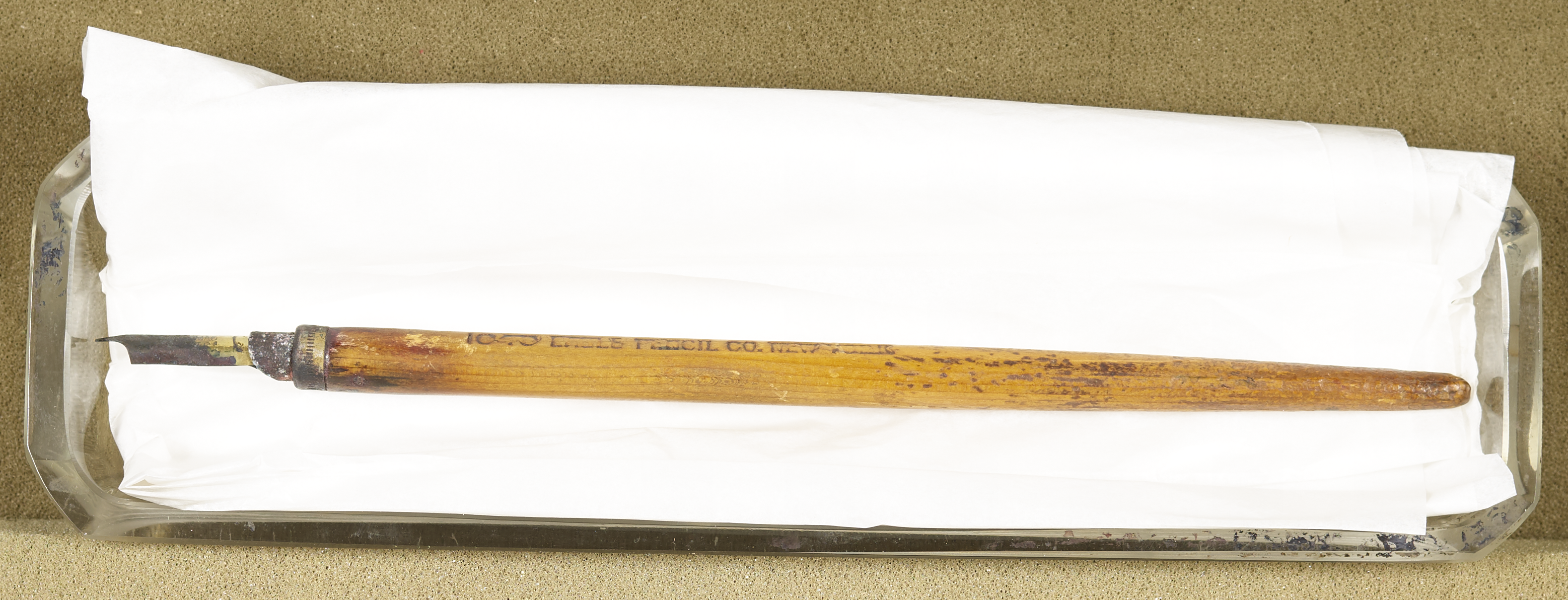
Pen belonging to C.S. Lewis
Lewis wrote everything with a dip pen, finding the regular breaks to dip the pen into the ink helpful for collecting his thoughts. He never learned to use a typewriter, believing that the noise disrupted his rhythm. His brother Warren typed his manuscripts before passing them to the publisher.
Permission to reproduce given by the estate of Walter Hooper.
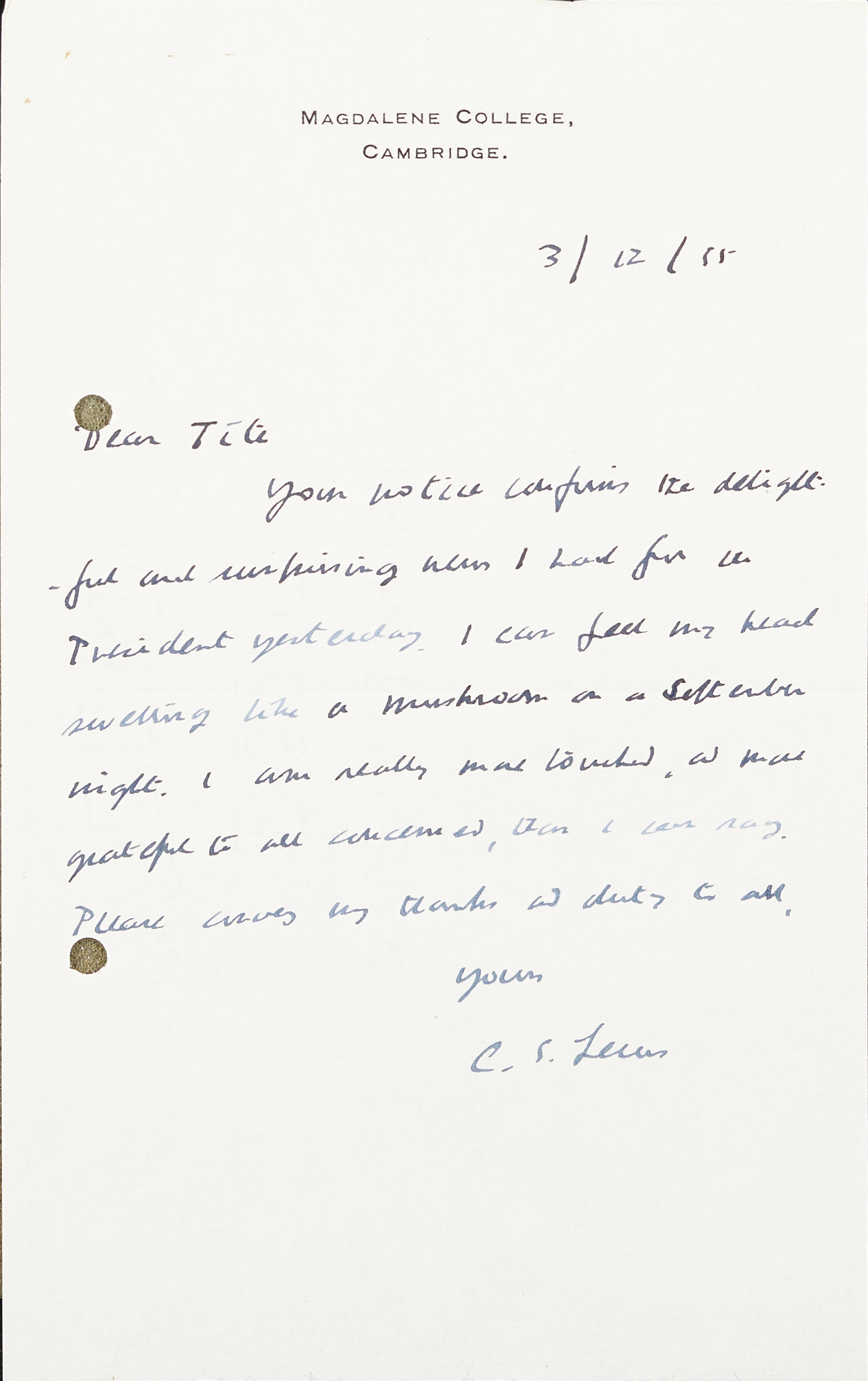
Letter acknowledging Honorary Fellowship, 3 Dec 1955
After his departure for Cambridge, Lewis was made an Honorary Fellow. In this letter, Lewis thanks the Magdalen Fellowship for the honour that had caused his head to swell ‘like a mushroom on a September night.’
Magdalen College Archives, MS 1026/III/3
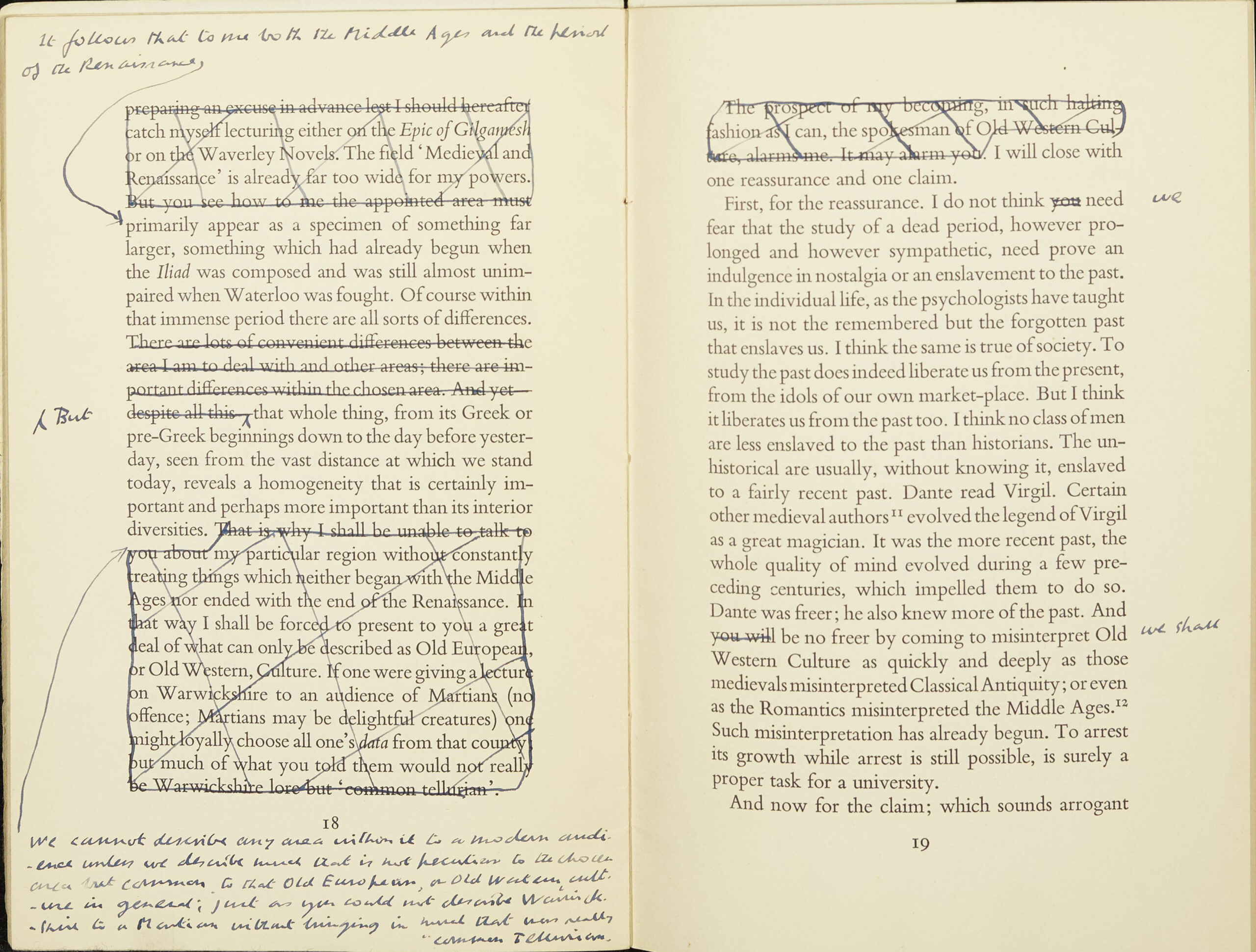
C.S. Lewis’s inaugural lecture as Professor of Medieval and Renaissance English at Cambridge University, with his annotations
Lewis delivered the inaugural lecture marking his election to the Professorship of Medieval and Renaissance English at Cambridge University on 29 November 1954. He later revised the text for delivery on BBC radio, with the title ‘The Great Divide’. This is the annotated copy of the published text that Lewis used for the radio broadcast. The audio version as broadcast on the BBC can also be heard in this exhibition.
Permission to reproduce given by Dr Gabriel Schenk